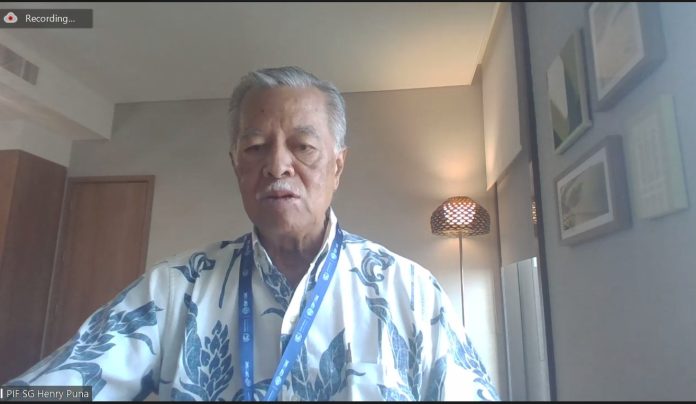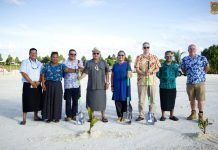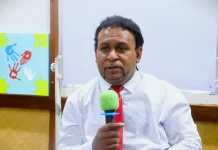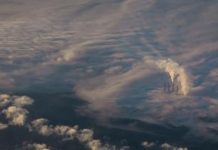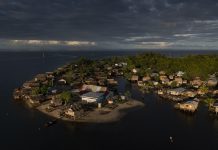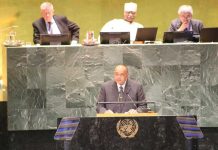By Pita Ligaiula at COP28 in Dubai, UAE
Forum Secretary General Henry Puna has expressed disappointment at the lack of responsiveness from the world’s biggest emitters to the Pacific’s urgent call for access to climate finance and commitment to the Paris Agreement 1.5 threshold.
“Our priority in the Pacific on climate change is the 1.5 degrees’ Celsius threshold. Unfortunately, the big emitters are not listening to science, which is very surprising because we all claim to be guided by science, and yet the science is clear: unless we reverse the track, we are overshooting the 1.5 threshold,” said SG Puna.
Despite the disappointing response, Puna affirmed the Pacific’s commitment to advocating for climate action at COP28.
“We have our political champions here at COP28 who continue our advocacy on the importance of the 1.5 threshold to us and the rest of the world,” he emphasised.
Responding to criticism that COP events are mere “talk fests,” Puna acknowledged the historical inaction following COP21 commitments.
However, he stressed that for the Pacific, COP serves as a crucial global platform to address climate change priorities.
“While others may be treating it as a talkfest, we from the Pacific are very serious about the messages that we want to advocate and will continue to advocate at COP,” he stressed.
Espen Ronneberg, Adviser to the SPC Climate Change and Environmental Sustainability Programme, supported Puna’s perspective, noting that since COP21, the Pacific region has better prepared for each subsequent COP.
“Climate finance was raised, and we’ve analysed it in great detail. We have suggested solutions to how we can improve. The problem is we have to negotiate, get consensus with other parties,” Ronneberg explained.
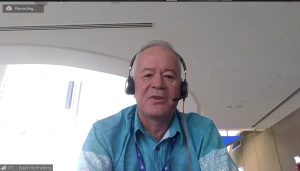
Despite challenges in wider negotiations, he highlighted the region’s success in securing agreement among island countries facing similar challenges.
Ronneberg emphasised the need for fair distribution of resources, stating, “We’re trying to get our fair share, the share that we think we should be getting because we’re simply not getting it at the moment.”
He noted the region’s practical steps, translating concerns into negotiation proposals, and the persistence in addressing issues like Loss and Damage introduced in 1991.
While acknowledging the challenges, Ronneberg concluded, “Yes, it’s challenging, but we can only do what we can.”
The Pacific leaders remain resolute in their commitment to securing a sustainable and equitable future for their nations amidst the global climate crisis.
SOURCE: PACNEWS






